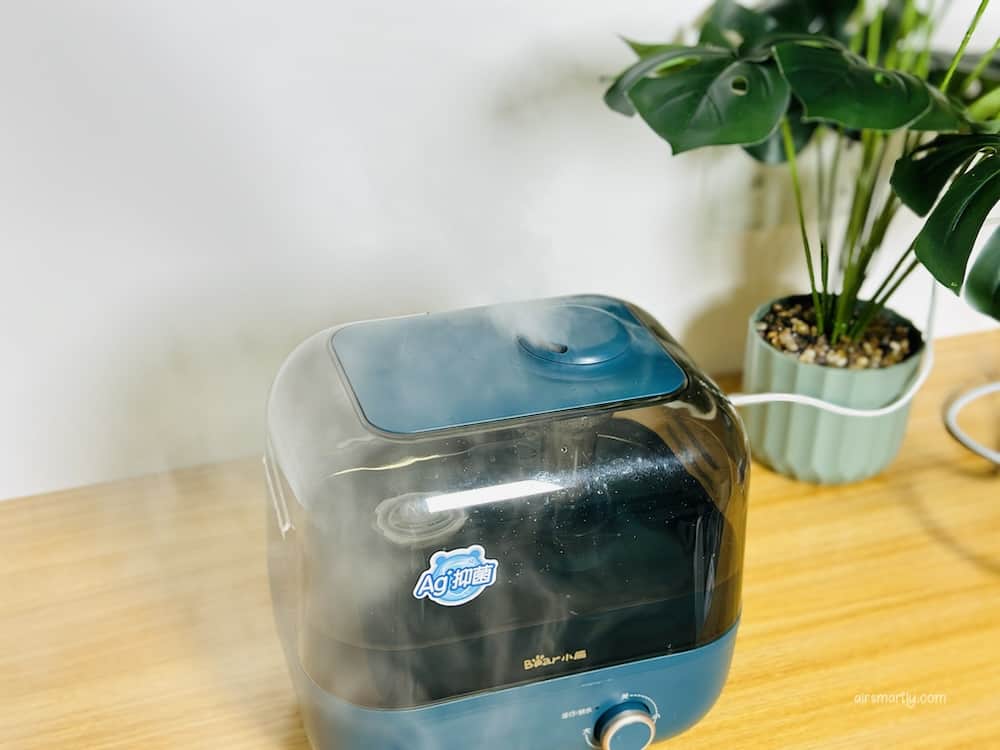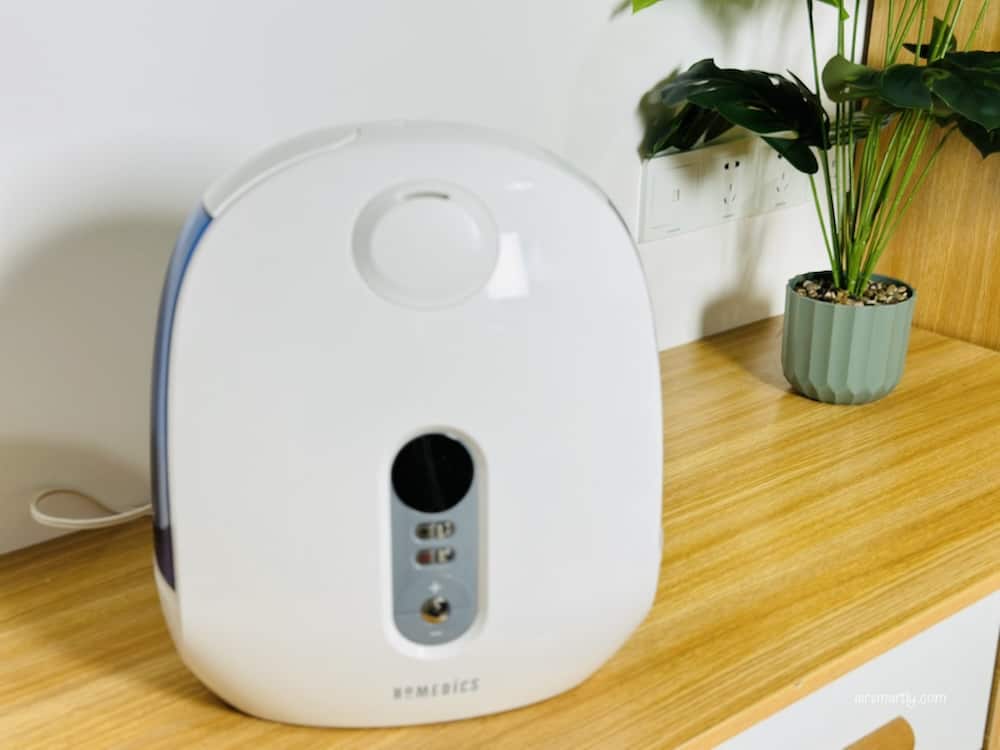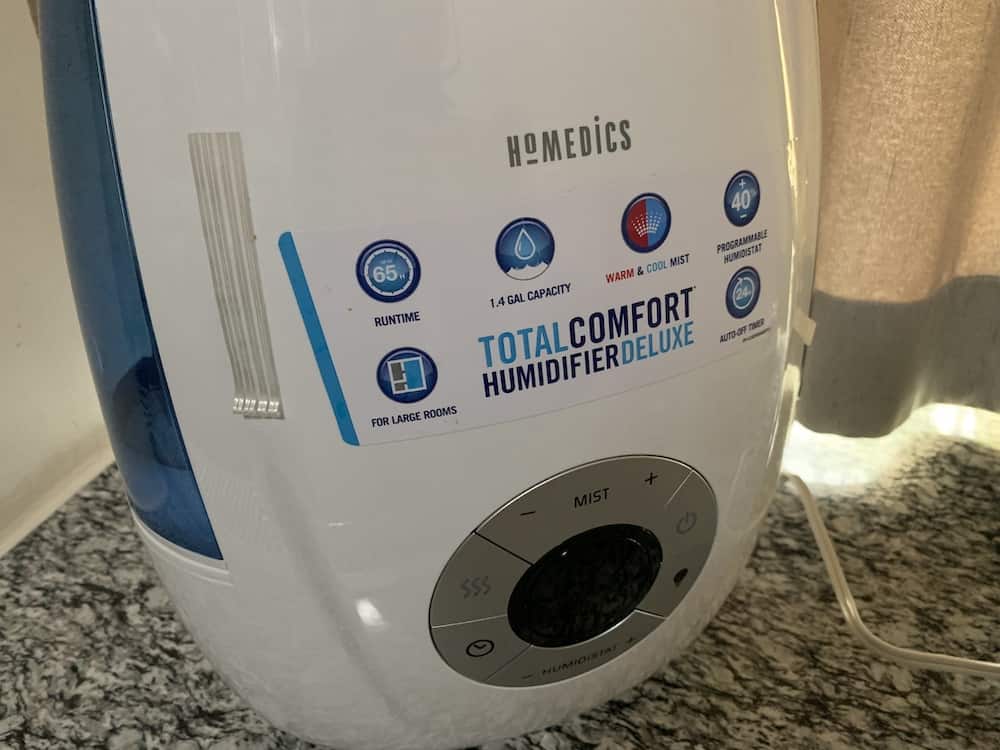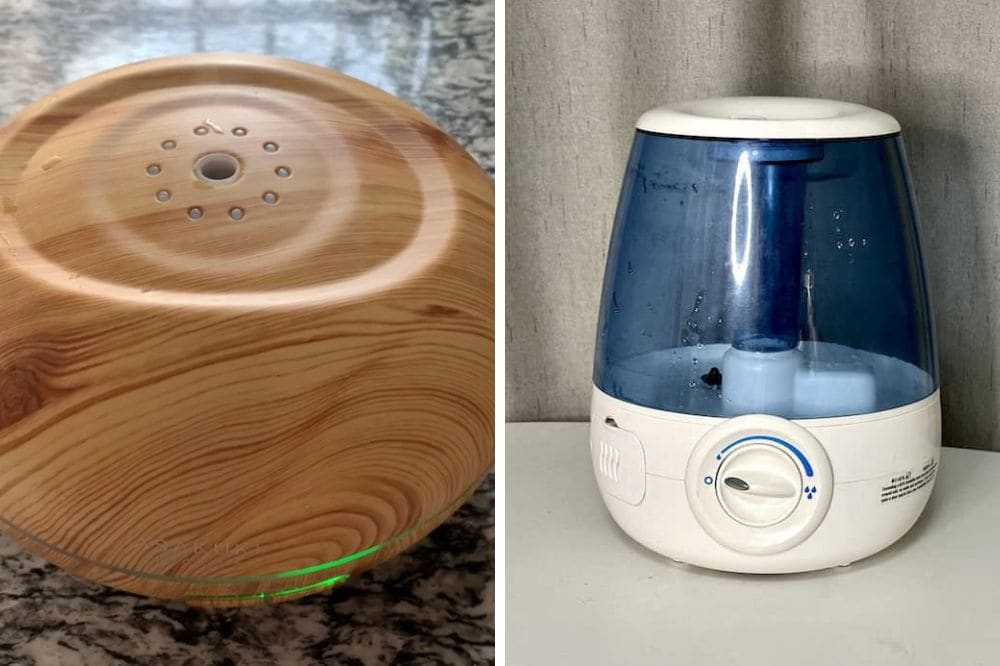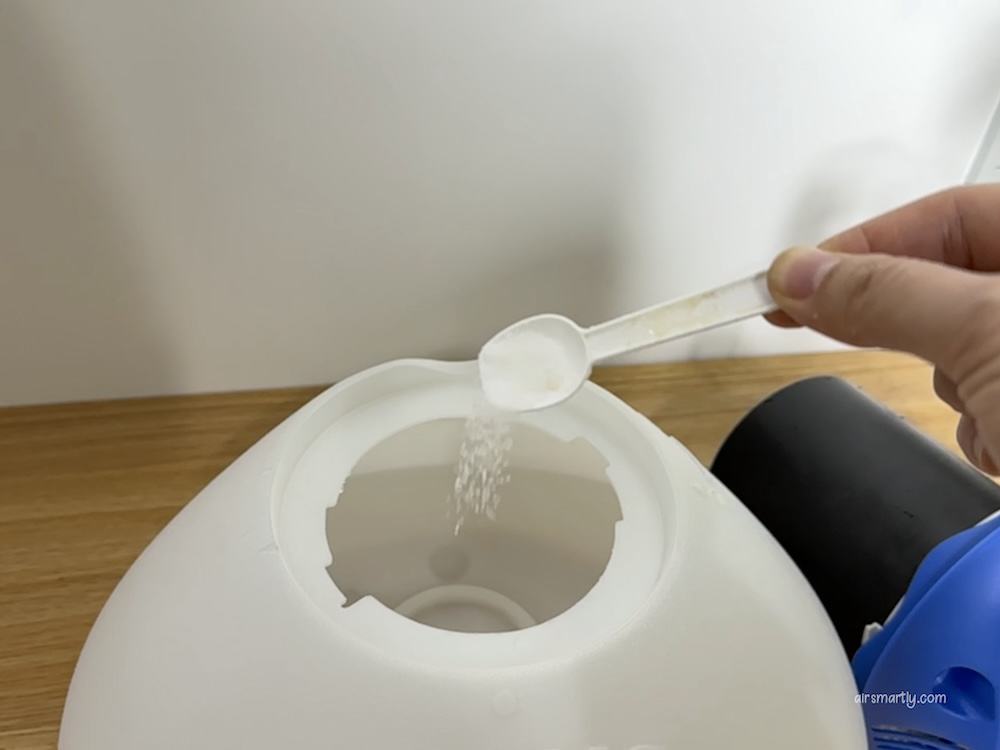Many people can live without a humidifier, especially in dry, cold winter months. It is a simple but helpful household appliance to relieve respiratory conditions, like chapped skin, sore throat, nasal congestion, etc.
However, you can’t go overboard with your humidifier. When running for too long, humidifiers can make you sick and trigger an array of humidifier sickness symptoms.
In this post, I will elaborate on what humidifier sickness is, its causes, and how to prevent this from happening.
Can humidifiers really make you sick?
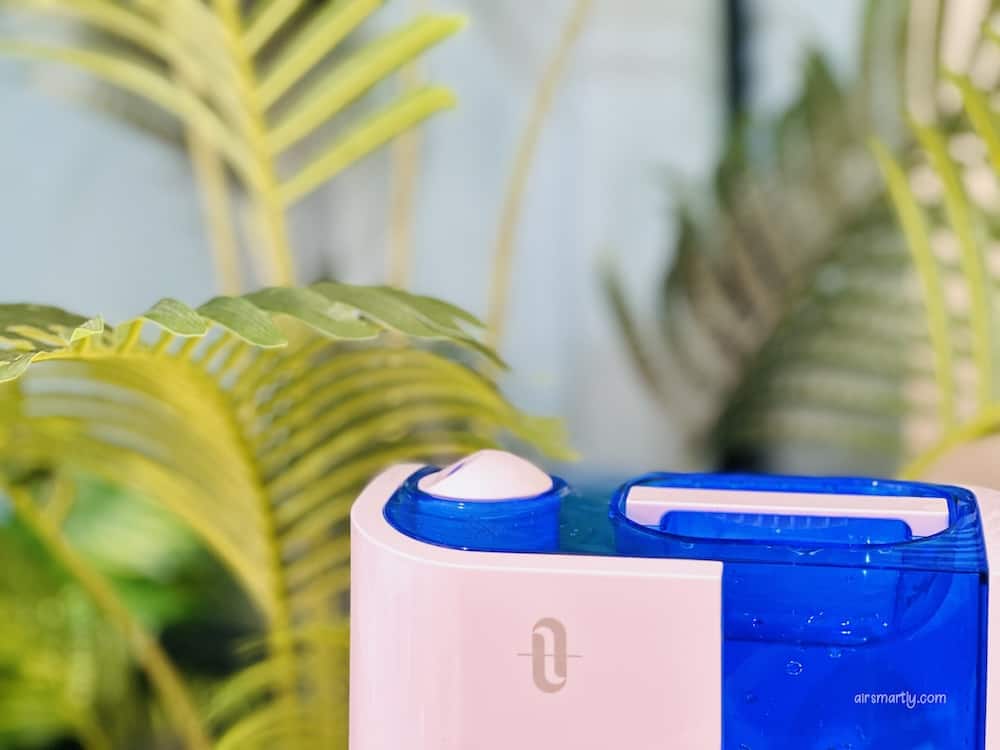
Yes, a humidifier can make you sick. It is not a rumor trying to scare you away from using it, but you shouldn’t be agitated either because you can avoid it as long as you use it properly.
A humidifier itself can’t make you feel unwell, but the content it releases will. In addition to moisture particles, mold spores, bacteria, and fungi are culprits. (More on that later)
It happens not only with portable humidifiers but with whole-house humidifiers. People in the workplace often reported having related sickness since the ventilation there is relatively poor.
What is humidifier fever or humidifier sickness?
With the popularity of humidifiers, more and more people began to talk about their sickness symptoms, and finally, scientists conducted studies and called the illness “humidifier sickness.”
Humidifier sickness is also known as humidifier fever, an influenza-like illness caused by using a humidifier. The symptoms include pyrexia, malaise, cough, congestion, shortness of breath, chest tightness, lung infections, or weight loss.
Noted that these symptoms don’t appear altogether, and some people are more prone to them than others. If you already suffer from respiratory issues such as allergies and asthma, you should pay close attention.
In many cases, people can go back to work the next day. However, you can always contact your doctor for help. It is better to be safe than sorry.
Causes of humidifier sickness symptoms
To understand how to prevent and treat humidifier sickness symptoms, you’d better first know the causes. Luckily, you can eliminate these risks quickly.
Dirty humidifier
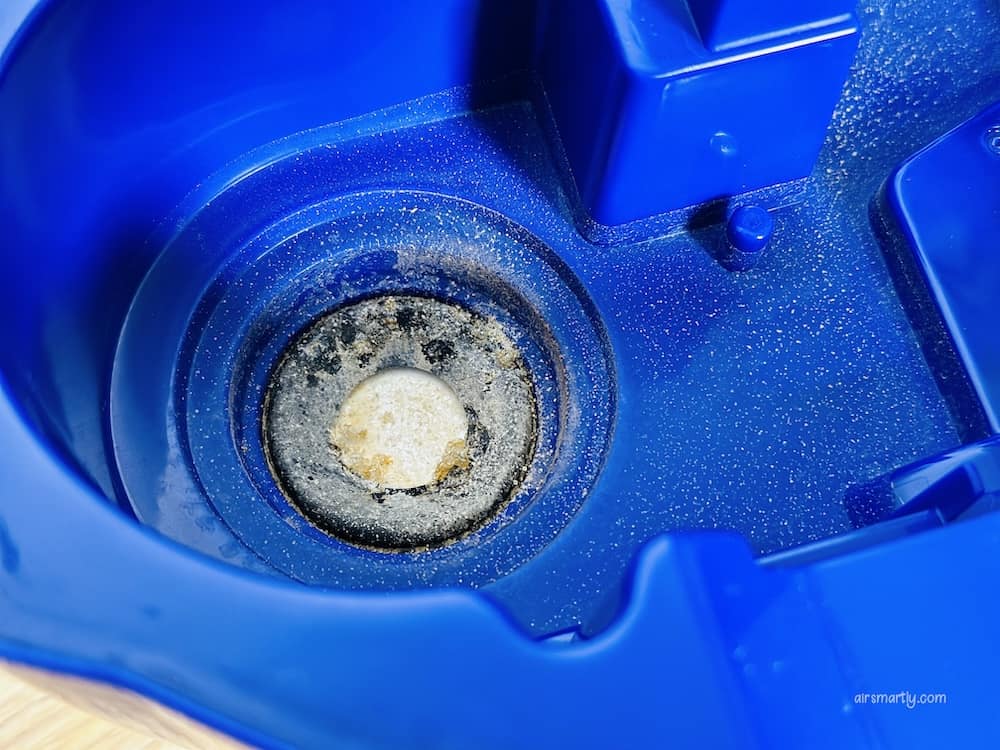
You can reap a lot of benefits when using a humidifier. Unfortunately, without proper cleaning and maintenance, humidifiers can also pose health threats to you.
Even though manufacturers recommend adding distilled water to a humidifier, many of us still insist on putting tap water in it as it is so convenient and affordable.
Tap water contains dissolved minerals, bacteria, fungus, and other impurities. These contaminants will settle down and become mineral build-up in the water tank. Bacteria and mold like to survive and thrive in warm and damp places and use mineral deposits as food.
These microorganisms will go with the vapor together and get into the air. When you inhale the air, it will find a new residence in your body, causing the sickness symptoms we discussed earlier.
Beyond that, the mineral deposits will also enter the air as “white dust.” White dust is not exactly toxic, and you can easily remove it when landing on the surface of furniture and electronics. However, when you breathe it in, it may cause some complications.
These adverse effects often occur with an ultrasonic humidifier since it directly breaks water into moisture particles without using any filters or going through a boiling process.
Over humidified room
While evaporative models can filter out a proportion of bacteria and mold spores and warm mist models can kill them with hot water, they can’t prevent you from humidifier sickness completely.
Regardless of the humidifier type you are using, they are all meant to increase indoor humidity by means of sending vapor or mist to the air.
If you run a humidifier for too long or use a unit that is not appropriate for specific square footage, the room can get over-humidified.
When indoor air gets saturated, it will promote the growth of molds, dust mites, and fungus in the room, which will make you sick when you breathe them in.
Even the damp air alone can increase airway resistance, leading to breathing difficulties and fatigue.
Wrong products added to the humidifier
In order to get the most out of a humidifier, many people try to add something to it, such as essential oil, perfume, disinfectant, and so on.
There may be some harmful components or allergens in these products. For example, a humidifier sanitizer killed over 14,000 people in Korea.
So you should always exercise caution when adding anything to your humidifier to avoid potentially dangerous allergic reactions, asthma flares, and other health conditions.
How to prevent humidifier sickness symptoms?
While you can get sick by using a humidifier, there are many measures you can take to prevent it from happening.
Change out the tank water every day
In standing water, mold spores will thrive, and scale and lime will develop. Sometimes you can’t use up the water in the humidifier, and the water becomes stagnant with time, making the humidifier to be a breeding ground for pollutants.
You’d better empty the water every day, rinse it off, and fill the tank with clean water. When not in use, you should dump the water and let it air dry.
Clean the machine regularly
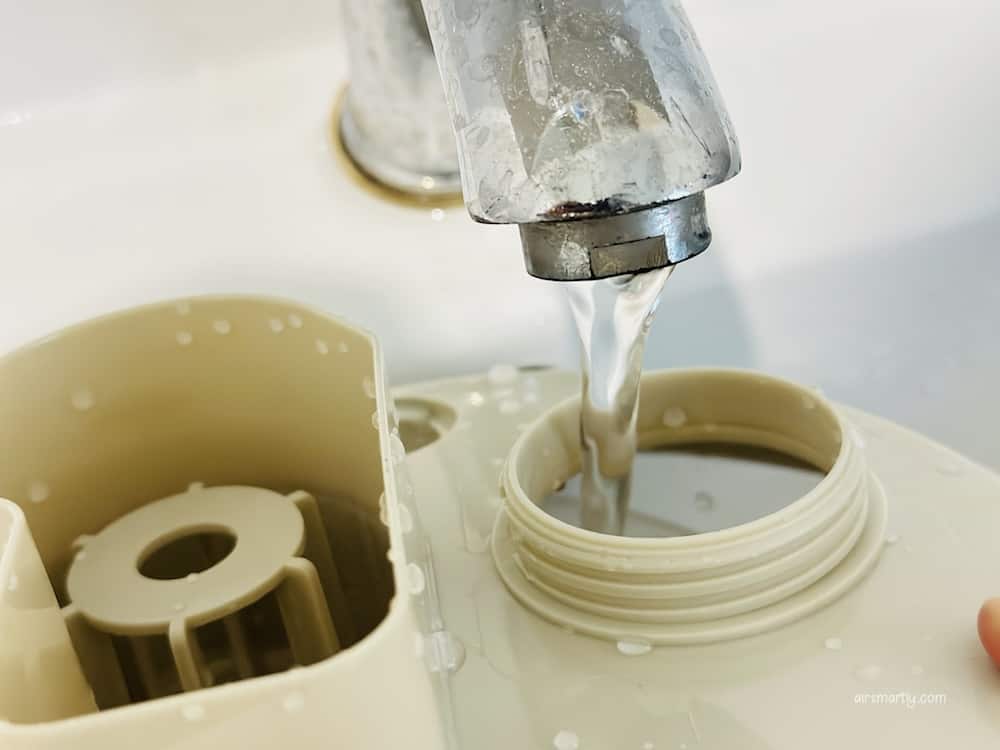
Once a week or every three days, you should clean and disinfect the appliance. Pour a few cups of white vinegar into the tank and base, then mix it with water. Let the solution sit for a while to sanitize the machine.
Replace the filter regularly
You should replace the filter every two to three months for those who use furnace humidifiers or evaporative humidifiers, depending on how frequently you use it.
If you don’t do that, the water can turn black, and the filter will, in turn, become another peri dish for microorganisms.
Use distilled water
Distilled water is the best for humidifiers since it is free of contaminants and minerals. Accordingly, there is a lower likelihood of developing humidifier sickness symptoms.
Aside from buying bottled distilled water, you can try to make it at home, saving you some money.
Conclusion
A humidifier is a godsend for many people in arid regions or has dry winter months. We love the benefits it brings to us, but we should also keep an eye out for its adverse effects.
People can get sick by using a humidifier when the machine is nasty, runs for too long, or is filled with harmful chemicals.
Suppose you are healthy but experience shortness of breathing, congestion, or allergic reaction when staying in a room with a humidifier running. In that case, you may get the so-called “humidifier sickness symptoms.”
To avoid this issue, you should commit to a regular cleaning routine, put distilled water in the device and replace the filter on time. Don’t be too afraid to use your lovely humidifier. As long as you clean and maintain it properly, you can continue to benefit from it without sacrificing your health.

